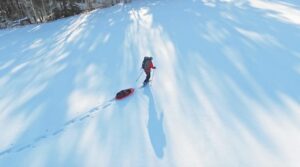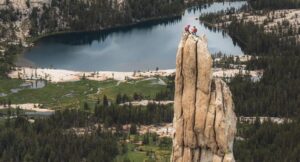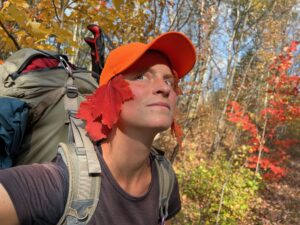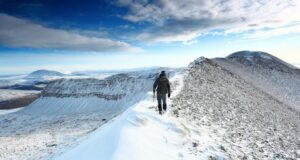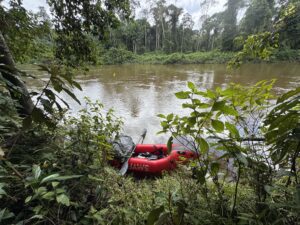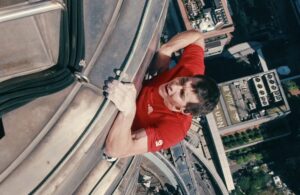When we’re not outdoors, we get our adventure fix by exploring social media and the web. Sometimes we’re a little too plugged in and browsing adventure reads can turn from minutes to hours. To nourish your adventure fix, here are some of the best adventure links we’ve discovered this week.
Tragic accident with sled dogs: Sled dogs in Aasiaat, West Greenland have bitten a six-year-old boy to death. They were chained outside the city’s ski club when the boy approached the animals too closely. Four of the dogs have been euthanized. This is a stark reminder that arctic sled dogs are not pets, they are working animals.
Thru-hiking showed me how lonely I was: Maggie Slepian had spent most of her adulthood feeling proud that she was so independent. It also made her feel lonely. Thru-hiking gave her a community of people with a shared goal. Walking for months on end, without home comforts, forced her to do something she hadn’t done for years: ask for help and rely on the people around her.
A new world record across the Cook Strait: Andy Donaldson (UK) is attempting to complete the Oceans Seven challenge. He has now completed his third swim and set a new world record in the process. He crossed the 22km Cook Strait in New Zealand in four hours and 33 minutes, cutting four minutes off Casey Glover’s 15-year-old speed record.

Andy Donaldson speeds across the Cook Straight. Photo: Outdoor Swimmer
Hard science, hard running go together
Why are so many scientists hardcore endurance runners? Marathons, ultramarathons, triathlons…pick any long-distance endurance race and you find that scientists are competing more often than they statistically should. In particular, physicists and astronomers seem to appear frequently in these races. Wired investigates why so many from these particular fields enjoy such sports.
Angela Eiter’s new mission: Legendary climber Angela Eiter became the first woman to climb 9b in 2017. In 2020, she made the first-ever ascent of another 9b route. Follow her as she seeks more firsts.
Using satellites to monitor natural disasters: Only researchers used to be able to map changes on Earth because of climate change or natural disasters. Now geographer Qiusheng Wu has detailed the various open-access sites that anyone can use to observe how coastlines, rivers, and wildland areas have changed over time. We can even monitor volcanic eruptions or wildfires as they happen.
Landing a plane in an emergency: It’s been a plot in several well-known films. The pilot falls ill and a tannoy asks: Are there any volunteers to land the plane? Unfortunately for would-be heroes, commercial pilot Patrick Smith says “There is a zero percent chance of someone pulling that off.”
Yet — why is this not surprising? — almost half of the men with no training said in a survey that they were confident they could land the plane. The clinical name for this wild overconfidence is the Dunning-Kruger effect.

Desierto Florido in the Atacama Desert. Photo: Shutterstock
Protecting the Atacama
A national park to protect the super blooms in the Atacama Desert: The Atacama is the driest desert in the world, and one of the most barren. At least, that is how it seems until a winter rain. Suddenly, the usually bare land fills with pink, amber, and gold flowers. It is known as desierto florido (flowering desert).
This used to happen every decade, but as the rains become more frequent, it now happens almost every year in some parts of the desert. To protect the blooms, Chile has made it a 57,000-hectare national park.

